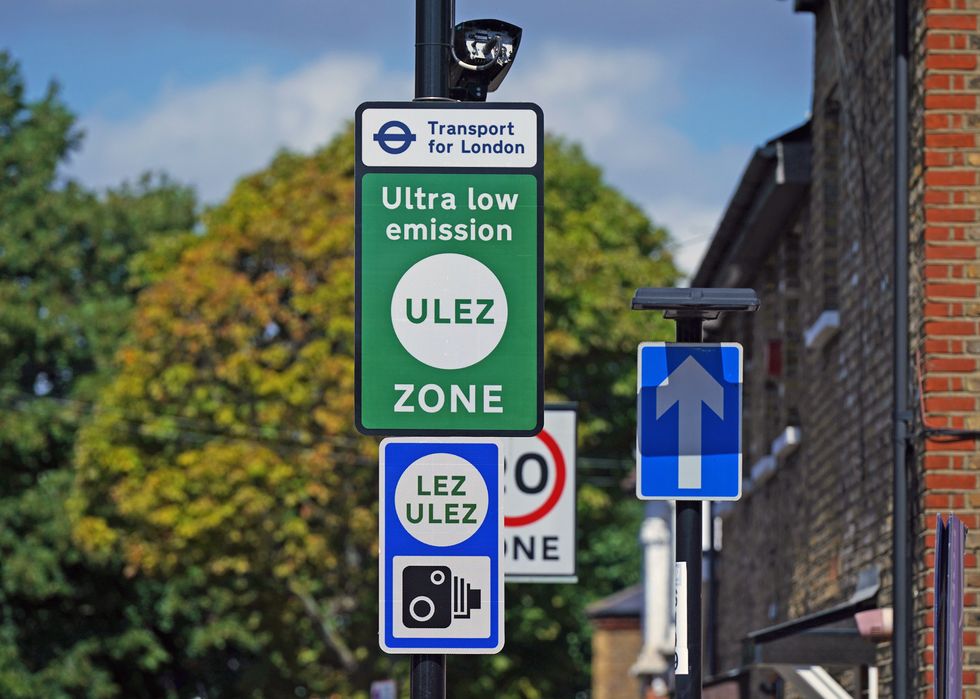Sadiq Khan is facing a mounting financial crisis as its Ulez debt levels have soared by nearly £300million in just three years.
The latest figures revealed that Transport for London is now owed a staggering £376million in unpaid Penalty Charge Notices for Ulez alone.
This sharp increase coincides with the expansion of the Ulez to cover the North and South Circular roads in October 2021, and its subsequent London-wide implementation in August 2023.
The total bad debt expenses have climbed from approximately £160million in 2020-21 to around £450million today, according to recent reports from the London Assembly Budget and Performance Committee.
Do you have a story you’d like to share? Get in touch by emailingmotoring@gbnews.uk
This dramatic rise has prompted urgent calls for action to address the financial shortfall and its potential impact on London’s transport network.
The scale of unpaid Ulez fines is staggering, with more than three out of five drivers failing to pay penalties since the scheme’s expansion last year.
Out of 1,348,938 penalties issued, a whopping 974,590 remain unpaid. In one extreme case, a single vehicle has racked up 200 unpaid tickets, amounting to £47,682 in fines. The total sum of unpaid Ulez fines stands at approximately £218million.
TfL warned that unpaid PCNs are passed to debt recovery services and may lead to further action. Drivers of non-compliant vehicles face a daily charge of £12.50 for entering the Ulez but failure to pay this fee can result in a £180 fine, reduced to £90 if paid within 14 days.
Despite these penalties, TfL reports that over 95 per cent of vehicles seen in the Ulez on an average day are compliant with the scheme’s emissions standards.
In response to the escalating debt crisis, the London Assembly Budget and Performance Committee has issued a letter to the Mayor with key recommendations.
It urged TfL to review the causes of the increased bad debt charge since 2021-22 and implement measures to boost collection levels for all road user charging schemes.
The committee emphasised the need for this review to be completed in time for the 2025-26 Budget. Neil Garratt AM, Chairman of the Budget and Performance Committee, expressed concern over the financial impact of the Ulez expansion.
He said: “Such large sums of money being owed to TfL, which may not be recoverable, means that much-needed transport investment projects might be scrapped.”
The committee has called for details on the ratio of bad debt charges before and after the Ulez expansion into outer London in 2023. They stress the importance of transparency regarding the Ulez expansion’s financial performance alongside its public health benefits.
But a TfL spokesperson emphasised that the Ulez is not intended to generate revenue, stating, “The Ulez is not about making money. It will lead to cleaner air while generating ever smaller net revenues, as has been the case with the previous expansion to inner London where people switched to greener vehicles.”
TfL outlined a process for challenging PCNs, allowing motorists 28 days to pay or contest the penalty. If a representation is accepted, the PCN is cancelled. If rejected, drivers can appeal to the Independent Adjudicator at London Tribunals.
LATEST DEVELOPMENTS:
 One in 10 drivers have not paid Ulez fines since the start of the year PA
One in 10 drivers have not paid Ulez fines since the start of the year PADespite the high number of unpaid fines, TfL reports significant revenue from Ulez charges. Between August 2023 and March 2024, over £115million was generated from compliant drivers.
The Ulez scheme has evolved since its 2019 launch in central London. It was briefly suspended during the Covid-19 pandemic before expanding to its current London-wide coverage on August 20

